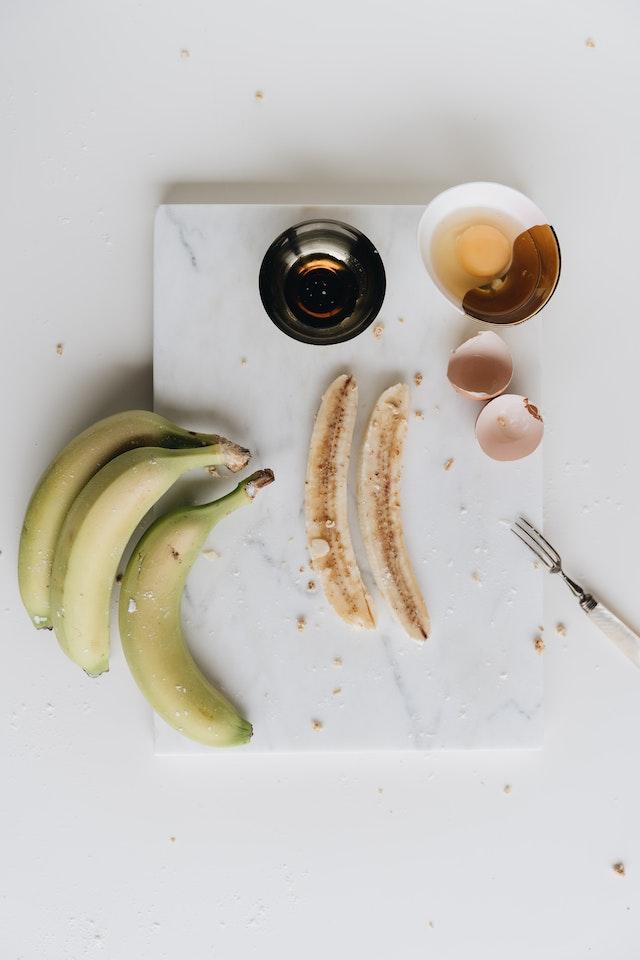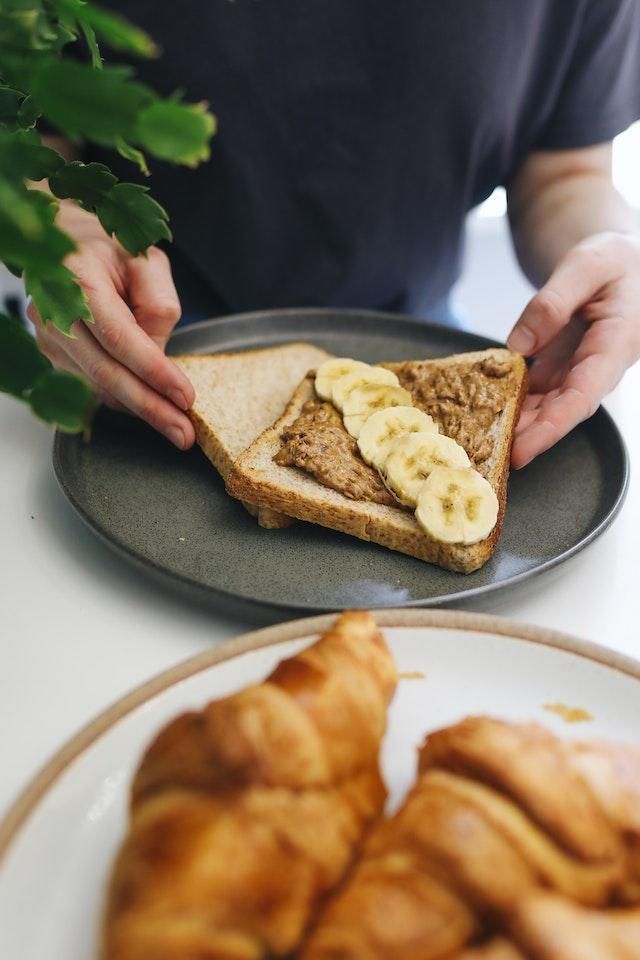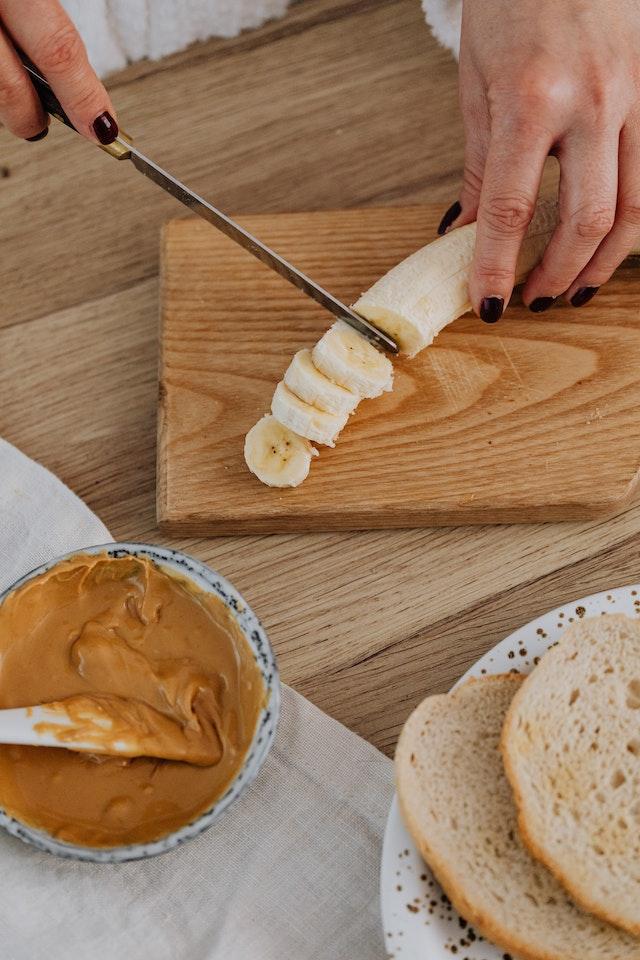Posts Tagged ‘bananas and diabetes’

Can Diabetics Eat Bananas?
In moderation, as part of a healthy, tailored diet plan, bananas are a fruit that individuals with diabetes can eat that is both safe and nutritious. A diabetic should include items from the plant kingdom in their diets, such as fresh fruits and vegetables. Bananas are a great source of nourishment without being calorie-dense.
The healthiest, most practical, tastiest, and least expensive fresh fruit you can purchase is the banana. They are therefore a fantastic option for anyone who wants to eat healthily.
Despite being native to Southeast Asia, they can be found anywhere due to their widespread ability to flourish in warm environments. The Cavendish cultivar, which is the most typical kind seen in supermarkets, begins stiff and green but ripens to golden, soft, and sweet. Additionally, bananas are a good source of several nutrients that are good for digestion, heart health, and weight loss.
en>Nutritional Information of Bananas
In addition to numerous antioxidants, bananas have a good quantity of fiber.
Additionally, one regular-sized banana (126 grams) provides the following benefits:
- Calories: 112
- Fat: 0
- Protein: 1 gram
- Carbs: 28 grams
- Fiber: 3 grams
- Vitamin C: 12% of the Daily Value (DV)
- Riboflavin: 7% of the DV
- Folate: 6% of the DV
- Niacin: 5% of the DV
- Copper: 11% of the DV
- Potassium: 10% of the DV
- Magnesium: 8% of the DV
The 12 calories in one banana are virtually entirely from water and carbohydrates. They contain no fat and very little protein.
The majority of the carbohydrates in green, unripe bananas take the form of resistant starch, an indigestible fiber that we’ll discuss shortly. The fruit’s flavor gets sweeter and its fiber content decreases as it ripens.
Benefits Of Bananas to Diabetics
Bananas may improve blood sugar levels
Soluble fiber is abundant in bananas. Soluble fiber creates a gel when it dissolves in liquid during digestion. It is also responsible for the sponge-like feel of bananas.
Additionally, resistant starch, which your body cannot digest, is present in unripe bananas. These two forms of fiber may work together to lower your blood sugar levels after eating. Additionally, they could control your hunger by delaying stomach emptying.
This indicates that despite having more carbs than other fruits, bananas won’t significantly raise blood sugar levels in healthy people. Although persons with diabetes can eat bananas, it is not advisable to eat a lot of them at once.
May Support Digestive Health
Improved digestion is one of the many health advantages of dietary fiber. The amount of fiber in one medium-sized banana is roughly 3 grams. The fiber found in unripe bananas, resistant starch, is also prebiotic. Prebiotics are able to evade digestion and make their way to the large intestine, where they feed the good bacteria in your stomach.
Additionally, the fiber pectin, which is present in both ripe and unripe bananas, may aid in preventing constipation and softening stools. Pectin has even been linked to studies in test tubes that suggest it may help prevent colon cancer, although human studies are still needed to validate this advantage.
May Aid Weight Loss
Bananas have not been directly studied for their benefits on weight loss. However, there are a few qualities in this well-known fruit that could help with weight loss. First off, there aren’t many calories in bananas. Despite having just over 100 calories on average, a banana is healthy and satisfying.
More fiber from fruits and vegetables has been frequently related to reduced body weight and weight loss. Unripe bananas are also loaded with resistant starch, which makes them full and helps you feel less hungry. If you want to eat unripe bananas, try preparing them the same way you would plantains.
May Support Heart Health
A key mineral for maintaining heart function and controlling blood pressure is potassium. Even though potassium is crucial, few people consume enough of it daily. With a medium-sized banana (126 grams) containing 10% of the DV, bananas are a convenient and excellent source of potassium.
Your blood pressure can be lowered by eating a diet high in potassium. Additionally, persons who consume a lot of potassium had a 27% decreased risk of developing heart disease, according to earlier studies and experiments on animals.
Furthermore, bananas provide 8% of the Daily Value (DV) for magnesium, another element crucial for heart health. An increased risk of heart disease, high blood pressure, and blood fat levels have all been linked to magnesium shortage.
You must therefore ensure that you consume enough of the mineral through your diet or dietary supplements.
Full of Antioxidants
Bananas are a great source of dietary antioxidants, just like other fruits and vegetables. They include amines and flavonoids, two different classes of strong antioxidants.
Numerous health advantages, including a decreased risk of heart disease and degenerative diseases, are associated with these antioxidants. They also aid in preventing the oxidative harm that free radicals do to your cells.
Without antioxidants, free radicals can accumulate over time and harm your body if their levels become too high.
May Help You Feel Fuller
By giving your digestive system more volume and slowing digestion, the soluble fiber in bananas may aid in keeping you satisfied.
In addition, considering their size, bananas have very few calories. Bananas are a more satiating snack than other foods like processed or sugar-filled boxed snacks because of their low calorie and high fiber content when combined.
Bananas are low in protein, a very satisfying macronutrient. So, for a snack that will satisfy your hunger, try mixing a banana into a protein smoothie or eating it with foods high in protein like Greek yogurt.
May Improve Insulin Sensitivity When Unripe
Numerous chronic illnesses, including type 2 diabetes, are significantly increased by insulin resistance.
Numerous studies show that consuming resistant starch on a regular basis, such as through the consumption of unripe bananas, may enhance insulin sensitivity. By doing this, you might increase your body’s sensitivity to the hormone that controls your blood sugar.
The resistant starch found in bananas may influence insulin sensitivity, although additional study is required to confirm this.
Might Improve Kidney Health
The healthy functioning of the kidneys and control of blood pressure depends on potassium. When it comes to maintaining the health of your kidneys, bananas may be particularly helpful as excellent dietary sources of potassium.
Lowering blood pressure and a slower progression of kidney disease was linked to potassium in one study that included over 5,000 people with early-stage chronic kidney disease.
However, certain individuals with advanced kidney disease or those on dialysis must limit their potassium intake. Before boosting your potassium consumption, if you fit into one of these groups, see your medical staff.
May Support Exercise Recovery
The ideal food for athletes is sometimes said to be bananas. This is mostly because they include carbs that are simple to digest and the minerals potassium and magnesium, which both function as electrolytes.
When you engage in severe activity, you sweat out electrolytes. Exercise-related muscular cramps and soreness may be decreased by replenishing your body’s potassium and magnesium after perspiring, such as by eating a banana.
Bananas’ impact on exercise performance, cramping, and recuperation, however, has not been thoroughly studied. But before, during, and after exercise, bananas are a fantastic source of nourishment.
Easy to Add to Your Diet
One of the most practical snack foods available, bananas are not only very healthy but also quite portable. They go wonderfully with yogurt, cereal, and smoothies, and they taste wonderful as a garnish on whole-wheat bread spread with peanut butter.
They can also be substituted for sugar in baking and cooking. Additionally, bananas are exceedingly simple to travel and consume. They are often easily digestible and well tolerated. You only need to peel them, and you are ready to go.
3 Ways to Eat Bananas If You Have Diabetes
Add Bananas to Other Dishes
What is an effective technique to reduce the blood sugar spike caused by any high-carb food? Include it with additional foods that include nutrients that take longer to break down, such as protein and fat. Given the high protein content of Greek yogurt, for instance, topping it with banana slices or, even better, layering the two items together to create a stunning, healthy parfait will lessen the effect that the carbs in both foods will have on your blood sugar levels.
Due to its high protein content and heart-healthy plant fats, peanut butter is another delicious food to combine with bananas. To get your fix, have oatmeal with peanut butter and bananas as a man.
Enjoy Half
Yes, sugar is a natural component of bananas. The recommended portion, a huge banana’s worth, has only 15 grams of carbohydrates, which is a startling revelation.
Before peeling the banana, cut it in half to prevent wasting the other half. Then, to keep it from going bad, wrap the exposed portion of the unfinished fruit in plastic wrap and place it in the refrigerator.
Have no plastic wrap on hand or would rather not use it? The eaten half can alternatively be placed vertically on a plate to seal the flesh from oxygen exposure.
Choose Firm Ones
The refractory starch begins to transform into a quicker-acting type of sugar when bananas ripen. In other words, the higher the sugar concentration, the softer the banana and the browner the peel.
A firmer banana can have a little reduction in blood sugar effects while still giving your body the same number of healthy vitamins, minerals, and fiber.
If you intend to eat bananas straight away, consider bananas that are bright yellow when purchasing a bunch. If it will be a day or two before you can eat them, look for brilliant yellow fruit that is beginning to turn green toward each end.
The Bottom Line
A common fruit with numerous possible health advantages is the banana. Because of their fiber and antioxidant content, they may improve your digestion and heart health. Furthermore, because they are full, nutrient-dense, and low in calories, they may aid in weight loss. Unripe, green bananas and ripe, yellow bananas can both sate your sweet tooth and promote good health.
FAQs
Are bananas OK for diabetics?
Fruits with fiber, vitamins, and minerals, like bananas, are nutritious foods. In spite of having diabetes, you can incorporate bananas into your diet.
Do bananas raise your blood sugar?
The amount of carbohydrates in bananas is substantial. It is well known that eating carbohydrate-rich foods causes blood sugar levels to rise quickly. The 14 grams of sugar and 6 grams of starch in a medium banana are both rather low.
Is a banana a day too much sugar?
No, a medium-sized banana’s 14 grams of sugar, or around 53% of its 105 total calories, make up the majority of the fruit’s nutritional content.
How many bananas can a diabetic eat a day?
One extra-small banana, which is no longer than 6 inches, is the suggested serving size for diabetics while eating bananas. A banana of this size has 19 grams of carbohydrates, which is about one-third of the 45 to 60 grams of carbohydrates that the majority of diabetics are allowed to eat at each meal.






